Brothers and sisters in Islam, what exactly does Allah subhanahu wa ta'ala want from us? How do we become a successful person in the Sight of Allah? Let us reflect on this ayah, where Allah says:
“Blessed is He in Whose Hand is the dominion, and He is Able to do all things. Who has created death and life, that He may test you which of you is best in deed; and He is the All-Mighty, the Oft-Forgiving.” [Surah Al-Mulk 67: 1-2]
In this ayah, Allah specifically mentions ‘best in deed’, and not ‘many deeds’. We all know how much our beautiful Deen emphasizes for us to do a lot of good deeds, but even more important than the quantity, is actually the *quality* of those deeds. This was why, when Al-Fudayl ibn ‘Iyad rahimahullah was asked what is the purest and most accurate deed (i.e. the best type of deed), he succinctly replied:
“If the deed is pure but not accurate it won't be accepted, and if it is accurate but not pure it won't be accepted, until it is both pure and accurate. The meaning of pure is that it is for Allah alone. And the meaning of accurate is that it is according to the Sunnah.” [Majmu' Al-Fataawa 333/1]
Meaning, the best deed is the one that is done sincerely for Allah (ikhlas lillahi ta’ala), while following the Sunnah of Rasulullah salla Allahu ‘alayhi wa sallam (ﷺ). And one of the ways to increase the quality of our good deeds is by actually hiding them! There is a lot of evidence in our Deen that shows the more we conceal our good deeds, the more they are beloved to Allah.
Allah subhanahu wa ta'ala says: “If you disclose your charity, it is well; but if you conceal them, and give them to the poor, that is better for you. (Allah) will expiate for you some of your sins. And Allah is Well-Acquainted with what you do.” [Surah Al-Baqarah 2: 271]
In this ayah, notice that Allah mentions two types of good deeds: (1) good deeds that are visible and sincere, and (2) good deeds that are also sincere but hidden. However, Allah says that the sincere hidden deeds are *better* than the visible ones, even if they’re sincere! And He subhanahu wa ta'ala ends the ayah by saying: “Allah is Well-Acquainted with what you do”, as if to say: “Even though nobody knows about your good deed, and nobody recognizes and appreciates your charity, don’t worry, Allah is well aware of what you did.” Brothers and sisters, we have a Rabb who is Ash-Shakoor - the Most Appreciative, the Most Grateful, the Rewarder of good deeds. Alhamdulillah!
Rasulullah ﷺ also taught us that the best nawafil (extra voluntary) prayer, is the one that is concealed from people. He ﷺ said: “The best prayer of a person is the one which he offers at home, except the compulsory (five daily, congregational) prayer.” [Sahih Al-Bukhari 6113]
And do you remember the hadith where Rasulullah ﷺ mentioned about the seven people whom Allah will shade on the Day of Judgment? If we reflect on that hadith, we will notice that some of the people mentioned are those who hide their good deeds as well. Rasulullah ﷺ said:
“There are seven whom Allah will shade on a day when there is no shade but His. (Two of them are the) one who spends in charity and conceals it such that his right hand does not know what his left hand has given; and one who remembers Allah in seclusion and his eyes are then flooded with tears.” [Sahih Al-Bukhari 660]
Rasulullah ﷺ mentioned that one of the people who will be shaded by Allah on the Day of Judgment is the one who gives charities in secret, so much so that “his right hand does not know what his left hand has given”. The wording of the hadith indicates how much he endeavours to hide all of his charities. So not only don’t the people know about them, his own right hand doesn’t know it either! He doesn’t bring it up, doesn’t remind others about it, doesn’t make small talk about it, until he himself might even forget what and how much he has given. Ma shaa Allah!
Rasulullah ﷺ also mentioned about the one who cries in seclusion when he remembers Allah subhanahu wa ta'ala. He remembers Allah’s Rahmah, how many mistakes and sins he has done, and yet how Oft-Forgiving Allah is to His believing servants. He remembers the Qur’an’s descriptive details about the terror in the Akhirah and the Hellfire, and he weeps and begs Allah to save him from such horror. His eyes shed tears in seclusion, away from people, but Allah subhanahu wa ta'ala sees all, and knows all. So in return, Allah protects him, and shades him on the Day where there will be no shade other than His.
May Allah make us among those who are shaded under His shade on the Day of Judgment. آمـــــــــين
From these ahadith, we can derive that the more a person hides his good deeds, the better those deeds are in the Sight of Allah subhanahu wa ta'ala. This was why our salaf (i.e. righteous predecessors) tried so hard to conceal and cover up their khayr.
Look at ‘Umar ibn Al-Khattab radhi Allahu ‘anhu, one of the greatest companions of Rasulullah ﷺ. He would go out in the darkness of the night, and would enter a house that was not his. After a while, he left the house. But Talhah ibn Ubaydillah radhi Allahu ‘anhu saw this incident. So the following morning, Talhah went to that house, and he found an old, paralysed, blind woman living there. Talhah asked: “Who was the man who came to you?”
She said: “He has been taking care of me for such and such time. He brings me what I need, and takes away any rubbish for me.” [Taken from ‘Umar ibn Al-Khattab, His Life And Times, by ‘Ali Muhammad As-Sallaabi, Vol. I, p. 265]
Ma shaa Allah, look at the humility of ‘Umar ibn Al-Khattab. He was one of the companions who were promised Jannah, yet still took the time to care for an old, disabled woman - brought food and water, cleaned up and threw rubbish for her. And he concealed this good deed from the knowledge of others, but Allah exposed that good deed to Talhah and the rest of us, so that we too may be inspired by it.
Look also at the life of ‘Ali ibn Husayn, the grandson of ‘Ali ibn Abi Talib radhi Allahu ‘anhum. During his time, there were poor people living in Madinah, who didn’t know where they got their food from. When ‘Ali ibn Husayn passed away, they started missing what they used to be given at night. This was because it was ‘Ali ibn Husayn himself who carried bread on his back in the darkness of the night, and followed the poor to give food to them. When ‘Ali passed away, they found marks on his back from the sacks of provisions he used to carry. [Al-Dhahabi in Siyar A’lam Al-Nubala’]
There are also many other narrations about our pious predecessors where they would conceal and cover up their tahajjud prayers from everyone. When it was time for the Fajr prayer, they would pretend as if they slept the whole night, and just woke up in time for salah.
These are the lives of our salaf, who wanted to preserve the sincerity of their good deeds by hiding them. And as a result, they had so many good quality deeds that followed them to their graves.
What about us, brothers and sisters?
Our pious predecessors struggled in hiding their good deeds, but we’re living in strange times where people struggle to make their good deeds apparent instead. In this era of technology, information, news, and updates are so easily disseminated to absolutely everyone across the globe. Facebook’s “What’s on your mind?, and Twitter’s “What’s happening?” keep prompting us to share things we did and experienced. And so we wrote about the charitable things we did, or how many times we have done Hajj and ‘Umrah, or we mentioned in passing about the tears we shed in our Qiyamul-layl.
And I do not mean to imply that sincere, apparent good deeds are not beloved to Allah. Sometimes it is our visible good deeds that inspire people to do good as well. But preserve some of those deeds to remain just between us and Allah. Let us be vigilant with our deeds, so that we do not diminish the quality of those khayr that we did.
Cover up our good deeds with the same vigilance as we cover up our sins. Have gheerah (protective jealousy) over them. And know that if we attach our deeds to the dunya, then our deeds will only last as long as the dunya lasts. But if we attach our deeds to the One who is Eternal, then our deeds will never go to waste. This is a reminder for myself foremost.
May Allah subhanahu wa ta'ala make us people who are true in our intention and sincere in all of our good deeds - the ones that are apparent, and the ones that are hidden. And may Allah help us preserve our secret good deeds that we carry to our graves, unknown by the inhabitants of this world, but known by the One above the seven heavens. آمـــــــــين
~ Aida Msr 🌸
___
Reference:
- Sunnah.com
 Aida Masuri Mustafa
Aida Masuri Mustafa 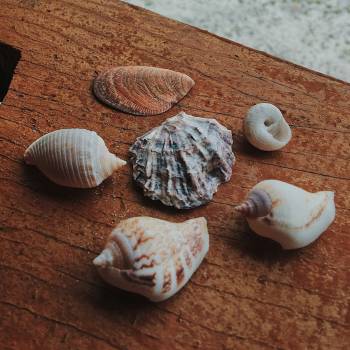
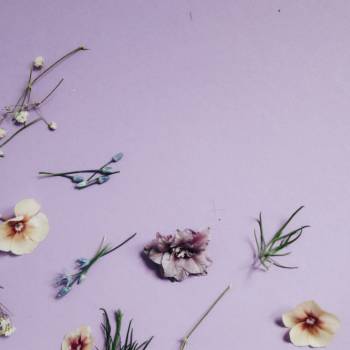
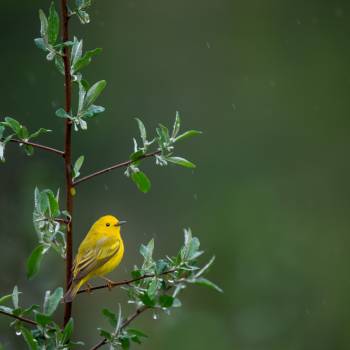
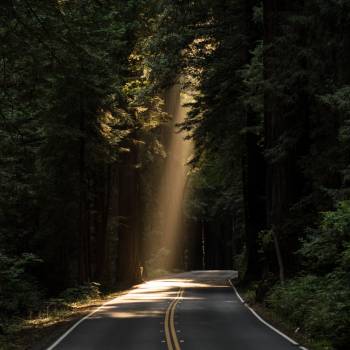

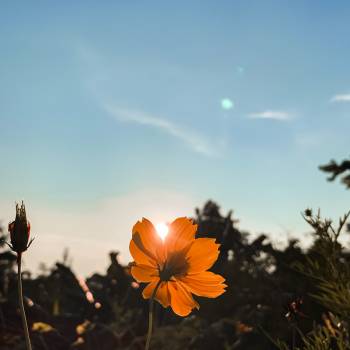
Ira Syatira
Aida Masuri Mustafa